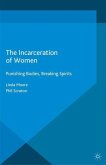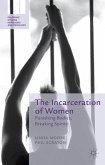"It is a book about punishment, imprisonment, re-entry and desistance - and the interrelationships between. ... It is brilliantly written and painstakingly analytical. This book is a must read for undergraduate and postgraduate students, but also for academics, policy makers and practitioners." (Beth Weaver, European Journal of Probation, Vol. 7 (4), 2015)
'Prisons are meant to accomplish a remarkable amount from punishment to rehabilitation to resettlement even. Yet, oddly, we rarely seek to test these theories by listening to the understandings of prisoners themselves on the imprisonment experience. In this important new work, Marguerite Schinkel allows us an almost unprecedented insight into these perspectives and develops a new approach to understanding the effects of imprisonment.' - Shadd Maruna, Dean, School of Criminal Justice, Rutgers University, USA
'A turning point for the scientific and legal study of imprisonment as punishment. Schinkel's researchbrings empirical depth to a field that has long theorized on the basis of the shallowest of understandings of how prison is experienced by those imprisoned and to a remarkable degree failed to question many of the premises thought to justify its routine imposition.' - Jonathan Simon, Berkeley Law, University of California, USA
'Prisons are meant to accomplish a remarkable amount from punishment to rehabilitation to resettlement even. Yet, oddly, we rarely seek to test these theories by listening to the understandings of prisoners themselves on the imprisonment experience. In this important new work, Marguerite Schinkel allows us an almost unprecedented insight into these perspectives and develops a new approach to understanding the effects of imprisonment.' - Shadd Maruna, Dean, School of Criminal Justice, Rutgers University, USA
'A turning point for the scientific and legal study of imprisonment as punishment. Schinkel's researchbrings empirical depth to a field that has long theorized on the basis of the shallowest of understandings of how prison is experienced by those imprisoned and to a remarkable degree failed to question many of the premises thought to justify its routine imposition.' - Jonathan Simon, Berkeley Law, University of California, USA








